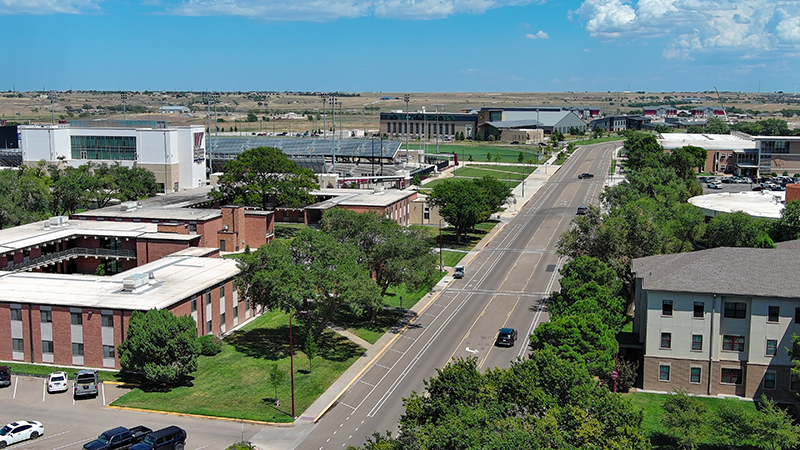
First in a series on Rural Universities.
Rural regions of the United States make significant contributions to the economic well-being of the nation. Rural America is the backbone of U.S. agriculture. In 2023, the agriculture, food and related industries contributed approximately $1.53 trillion to the U.S. gross domestic product (GDP), accounting for 5.6% of the total GDP. In Texas, agriculture contributes over 9% of the total state GDP, a significant portion of which occurs in the Texas Panhandle, according to Texas AgriLife Extension. The direct output from all of America’s farms was $203.5 billion, which means Texas represents about 0.7% of the national farm GDP. Texas’ 230,662 farms and ranches are more than any other state in the nation and cover some 125.5 million acres, according to Texas Department of Agriculture data. The U.S. is one of the world’s largest agricultural producers. Nationally, one in ten U.S. workers is engaged in agriculture-related work. As WT serves our region, these realities are top of mind.
In addition, rural areas are hubs for energy production, including oil, natural gas, wind and solar energy. In 2023, the mining, quarrying, oil and gas extraction sector contributed approximately $170.97 billion to Texas’ $2.1 trillion GDP, accounting for roughly 8.1% of the state’s total GDP. Renewable energy sources like wind farms and solar fields are located in rural regions.
Rural America supports a unique cultural heritage, along with small businesses and innovative entrepreneurship. The Hill Institute at West Texas A&M University is working to understand the values and culture required to support rural culture and key industries for the invaluable contribution they make to the state and nation.
These regions are critical to our national well-being but are challenged, according to Brookings. Declining populations, limited access to education, along infrastructure gaps (e.g., broadband access) all burden these and rural contributions to economic production. Health care is also lacking in many rural communities. Telehealth services have significantly expanded, allowing rural residents to access specialists and primary care without traveling long distances. According to the Texas Medical Association, Texas has implemented supportive policies and regulations to help ensure patient safety through telehealth care. There are scholarship programs and loan forgiveness opportunities for medical professionals willing to work in rural areas. The College of Nursing and Health Sciences at WT works to serve the people of the Panhandle by offering training for rural healthcare providers to build a workforce familiar with the unique needs, cultures and opportunities of these communities. Rural areas often face higher instances of mental health and substance abuse issues. Resources are being directed to address these needs through telepsychiatry and addiction treatment programs. Rural hospitals and clinics are increasingly equipped to handle emergencies, such as natural disasters or pandemics, with better training and resources administered through the Texas Division of Emergency Management. By embracing these challenges as opportunities, Universities in rural regions can assist in generating solutions rather than simply lamenting problems.
Rural universities play a significant role and have a responsibility in fostering economic growth in their regions. A university’s contributions can be categorized into several key areas: providing education and training, equipping students with skills to meet the local labor market’s needs, as well as attracting and retaining talent in rural areas to support industries requiring specialized knowledge. Universities offer continuing education and professional development programs for the local workforce. WT is working to become a regional research university to be able to address real problems in our region with the idea of transporting our insights to other regions of the state, nation and world as outlined in our long-range plan, WT 125: From the Panhandle to the World.
WT research and innovation is focused on solving problems related to local needs tailored to local industries, such as agriculture, energy, renewable energy and rural health. By hosting business incubators and supporting startups through the WT Enterprise Center, entrepreneurship in rural areas is encouraged. And, not to be understated, WT enhances the quality of life across the region by hosting cultural events, providing access to libraries, and offering recreational facilities, as well as other forms of outreach to smaller, sometimes isolated communities. The Sybil B. Harrington College of Fine Arts and Humanities has been funded through a generous gift from Louise C. and Gene F. Rahll Endowment to share the arts across the Texas Panhandle.
Our work with and through The Texas A&M University System supports every aspect of our mission in accomplishing their mission of statewide service through agricultural and mechanical education, research and community service. The A&M System regional rural universities are anchors for economic development zones, attracting businesses and fostering regional innovation across the whole state. The regional strength of WT comes in part from its relationship with Texas A&M University. WT is a strong and valued partner.
By addressing both the immediate needs of rural economies and fostering long-term development, rural universities serve as vital engines for economic growth in their communities, especially when coupled with an international powerhouse such as The Texas A&M University System. At WT, we labor daily to sustain our responsibility and relationship to our critically important corner of Texas.
Walter V. Wendler, President of West Texas A&M University. His weekly columns, with hyperlinks, are available at https://walterwendler.com/.




